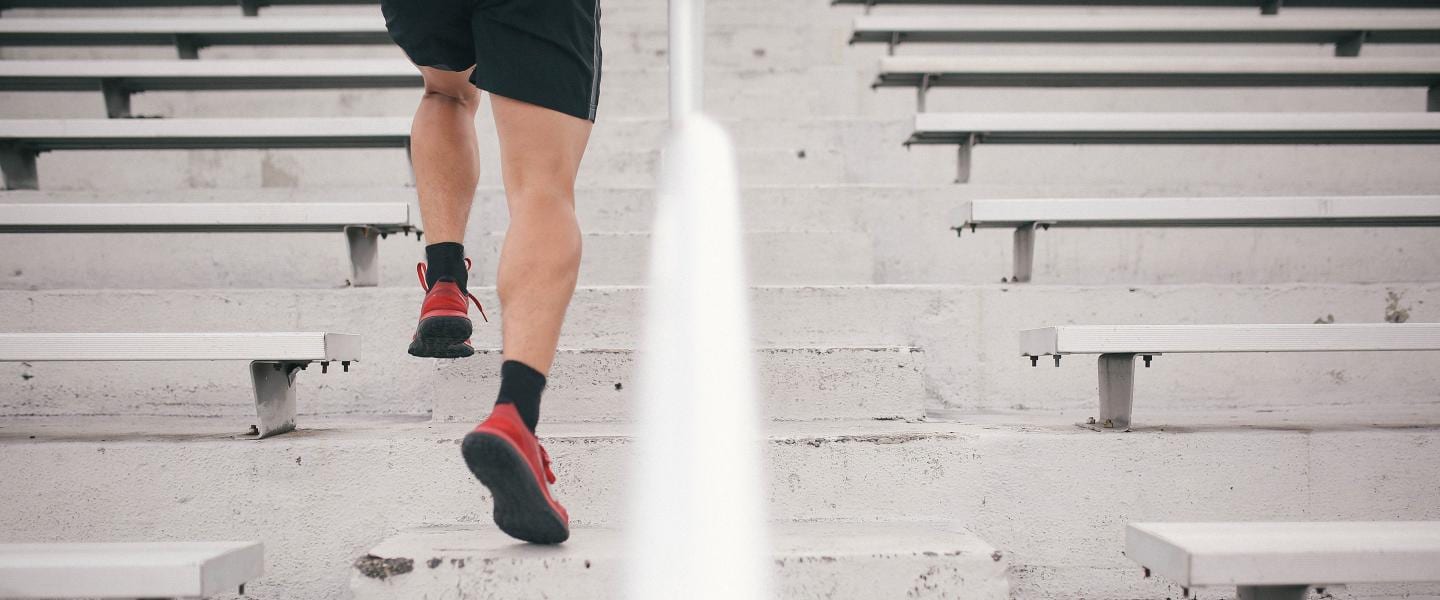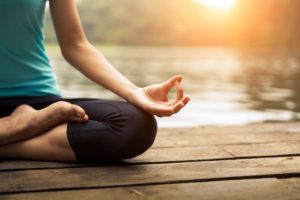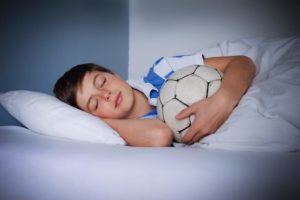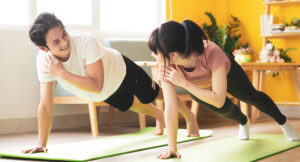When you buy through our links, we may earn a commission. Products or services may be offered by an affiliated entity. Learn more.
The Best Exercises for Sleep
The link between regular exercise and sleep quality has been studied extensively. Current research strongly suggests exercise and sleep share a bidirectional relationship. Moderate exercise during the day can help people sleep better, while not getting enough sleep may lead to lower levels of daily physical activity.
Some types of exercise promote better, higher-quality sleep than others. Understanding which exercises are best for sleep – and when you should work out during the day – can help ensure you get enough rest on a nightly basis.
Looking to improve your sleep? Try upgrading your mattress.
Aerobic Exercise
Aerobic or “cardio” exercise promotes more rapid breathing and faster heartbeats. This type of exercise can improve blood pressure and reduce your risk of heart disease.
Aerobic exercise is measured in intensity. Moderate-intensity activities will increase your heart rate and cause you to perspire. Examples include brisk walking, water aerobics, and semi-hilly bike rides. Vigorous-intensity aerobics, which can raise your heart rate to a much greater extent, include running or jogging, lap-swimming, intense bike rides, and physically demanding sports like basketball or singles tennis.
An informal way of measuring the intensity of aerobic activities is known as the Talk Test. During moderate-intensity exercises, you can talk at a normal rate but most won’t be able to sing. For vigorous-intensity activities, most people can’t speak more than a few words before they need to catch their breath.
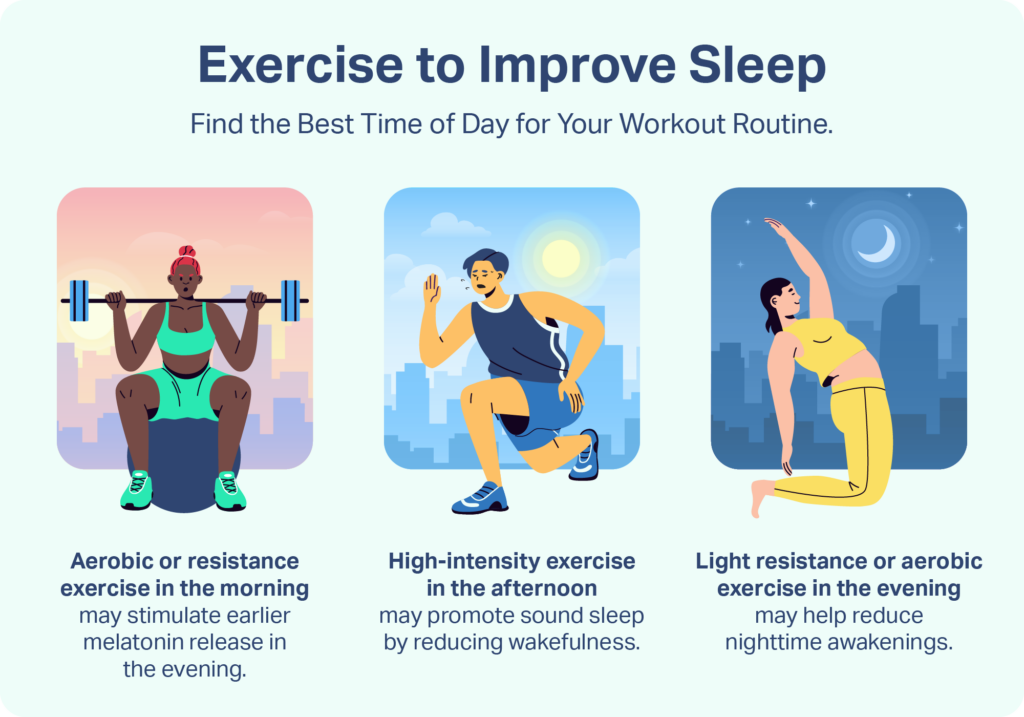
Studies have found that regular aerobic exercise for prolonged periods can improve sleep quality and reduce excessive daytime sleepiness for people with insomnia. Research also shows moderate-intensity aerobic activities can decrease the severity of sleep-disordered breathing conditions like obstructive sleep apnea. Interestingly, some studies suggest moderate-intensity aerobic exercise may improve sleep quality more than vigorous-intensity activities.
Traditionally, sleep experts have advised against exercising at night because physical activities can increase the heart rate and make falling asleep more difficult. However, some studies have noted that moderate or vigorous workouts before bed have little to no effect on sleep onset or sleep quality.
Resistance Exercise
Resistance exercise, also known as strength training, focuses on building muscle strength throughout the body. Health experts recommend a mix of aerobic and resistance exercise in order to improve different aspects of your physiological health. Examples of resistance exercise include:
- Lifting weights
- Working out using resistance bands
- Push-ups, sit-ups, and other resistance exercises
The key to effective strength training is repetition. You should perform sets of resistance exercises that include up to 12 repetitions apiece. Strength training can initially be very difficult, so first-timers may begin with one set of each activity per workout and gradually increase to multiple sets once they are comfortable.
Like aerobic activities, regular resistance exercises can improve sleep quality and other aspects of your nightly rest. Strength training can also lower your risk for anxiety and depression, two common risk factors for sleep disorders like insomnia. However, the effects of resistance training on sleep quality and architecture have not been extensively studied.
Yoga
Yoga is a specific type of resistance training that focuses on posture improvement, breathing exercises, and meditation. Yoga has been shown to alleviate stress, help people lose weight, and reduce pain in the neck and lower back.
Practicing yoga may also improve sleep quality. While the link between yoga and better sleep has not been extensively evaluated in terms of the overall population, some studies have noted sleep improvements for certain individuals. These include the elderly, women with sleep problems, and women with Type 2 diabetes.
Additional Exercise Tips for Getting Better Sleep
The best exercises for sleep vary from person to person. Below, we offer some recommendations for finding the best workout routines to improve your sleep.
- Experiment with timing and intensity: Historically, intense or late-night workouts have been discouraged due to the negative effects these activities could pose on sleep quality. However, some contemporary studies argue workouts before bed do not affect sleep to a significant extent. Try exercising during the day, in the afternoon, and within a few hours of bedtime to see which routine improves your sleep the most. The same goes for moderate- and vigorous-intensity workouts.
- Getting better sleep can help you exercise more often: Due to the bidirectional relationship between exercise and sleep, you may be less inclined to engage in physical activities after a poor night’s rest. Getting enough high-quality sleep before days when you plan to exercise is an effective way to commit to your workout regimen.
- No need to overdo it: While longer or more vigorous workouts can lead to more physical improvements, just 30 minutes of moderate exercise per day can alleviate anxiety and help you sleep better at night. Rather than focusing on daily allotments, you should commit to daily exercise for longer periods. One study found that moderate aerobic exercise routines lasting six months in length can be highly effective at improving sleep as well as mood and overall quality of life.

Still have questions? Ask our community!
Join our Sleep Care Community — a trusted hub of sleep health professionals, product specialists, and people just like you. Whether you need expert sleep advice for your insomnia or you’re searching for the perfect mattress, we’ve got you covered. Get personalized guidance from the experts who know sleep best.
References
12 Sources
-
Kline C. E. (2014). The bidirectional relationship between exercise and sleep: Implications for exercise adherence and sleep improvement. American journal of lifestyle medicine, 8(6), 375–379.
https://pubmed.ncbi.nlm.nih.gov/25729341/ -
Division of Nutrition, Physical Activity, and Obesity, National Center for Chronic Disease Prevention and Health Promotion. (2023, December 20). How much physical activity do adults need? Centers For Disease Control and Prevention.
https://www.cdc.gov/physical-activity-basics/guidelines/adults.html?CDC_AAref_Val=https://www.cdc.gov/physicalactivity/basics/adults/index.htm -
Mersy DJ (1991). Health benefits of aerobic exercise. Postgrad Med. 90(1),103-7, 110-12.
http://www.tandfonline.com/doi/full/10.1080/00325481.1991.11700983 -
Myllymäki, T., et. al. (2011), Effects of vigorous late‐night exercise on sleep quality and cardiac autonomic activity. Journal of Sleep Research, 20, 146-153.
https://onlinelibrary.wiley.com/doi/10.1111/j.1365-2869.2010.00874.x -
Kovacevic, A., Mavros, Y., Heisz, J. J., & Fiatarone Singh, M. A. (2018). The effect of resistance exercise on sleep: A systematic review of randomized controlled trials. Sleep Medicine Reviews, 39, 52–68.
https://linkinghub.elsevier.com/retrieve/pii/S1087079216301526 -
American Academy of Sleep Medicine. (2014). The International Classification of Sleep Disorders – Third Edition (ICSD-3). Darien, IL
https://aasm.org/ -
National Center for Complementary and Integrative Health. (2019, May). Yoga: What You Need To Know.
https://www.nccih.nih.gov/health/yoga-what-you-need-to-know -
Bankar, M. A., Chaudhari, S. K., & Chaudhari, K. D. (2013). Impact of long term Yoga practice on sleep quality and quality of life in the elderly. Journal of Ayurveda and integrative medicine, 4(1), 28–32.
https://pubmed.ncbi.nlm.nih.gov/23741159/ -
Wang, W. L., Chen, K. H., Pan, Y. C., Yang, S. N., & Chan, Y. Y. (2020). The effect of yoga on sleep quality and insomnia in women with sleep problems: a systematic review and meta-analysis. BMC psychiatry, 20(1), 195.,
https://pubmed.ncbi.nlm.nih.gov/32357858/ -
Ebrahimi, M., Guilan-Nejad, T. N., & Pordanjani, A. F. (2017). Effect of yoga and aerobics exercise on sleep quality in women with Type 2 diabetes: a randomized controlled trial. Sleep science (Sao Paulo, Brazil), 10(2), 68–72.
https://pubmed.ncbi.nlm.nih.gov/28966742/ -
Herring, M. P., O’Connor, P. J., & Dishman, R. K. (2010). The effect of exercise training on anxiety symptoms among patients: a systematic review. Archives of internal medicine, 170(4), 321–331.
http://archinte.jamanetwork.com/article.aspx?doi=10.1001/archinternmed.2009.530 -
Passos, G. S., Poyares, D., & Santana, M. G., et. al (2011). Effects of moderate aerobic exercise training on chronic primary insomnia. Sleep Medicine, 12(10), 1018–1027.
https://linkinghub.elsevier.com/retrieve/pii/S1389945711002553



